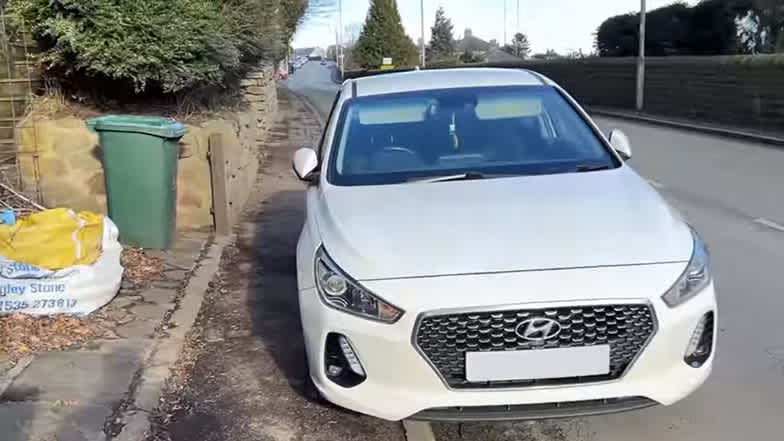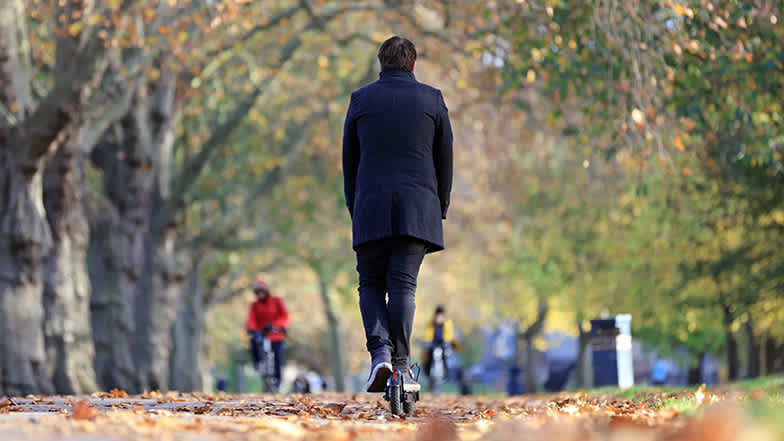A guide dog owner has spoken of the frustrations and difficulties he has faced because of inconsiderate parking, ahead of the publication of the Government’s pavement parking consultation.
Terry Quinn, 57, from Bradford, was left feeling terrified when he encountered multiple vehicles blocking the pavement, meaning he had to walk into oncoming traffic three times on an extremely busy road.
Terry, who has been matched with his guide dog Spencer since 2020, has shared the six-minute video online in the hopes of raising awareness of the issues caused by pavement parking. These images are a few examples of vehicles blocking the footpath in Terry's video:
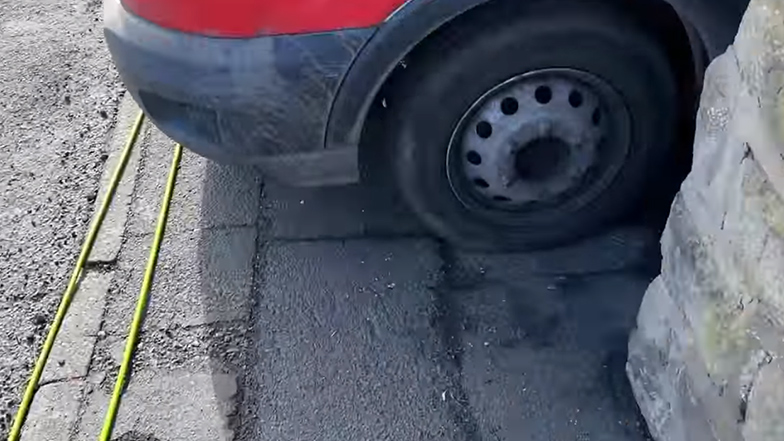
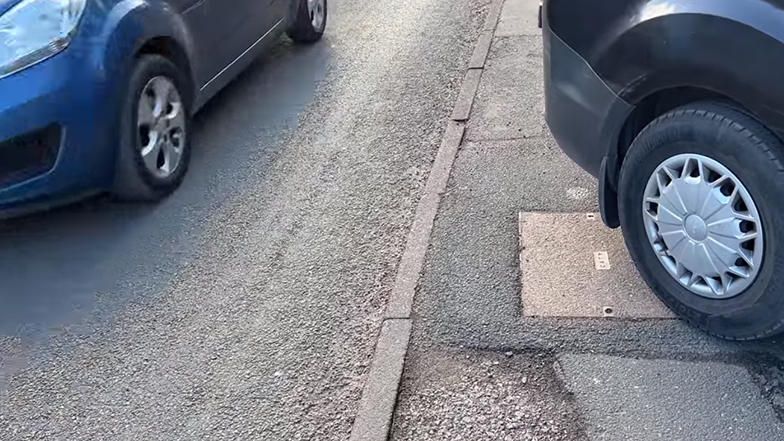
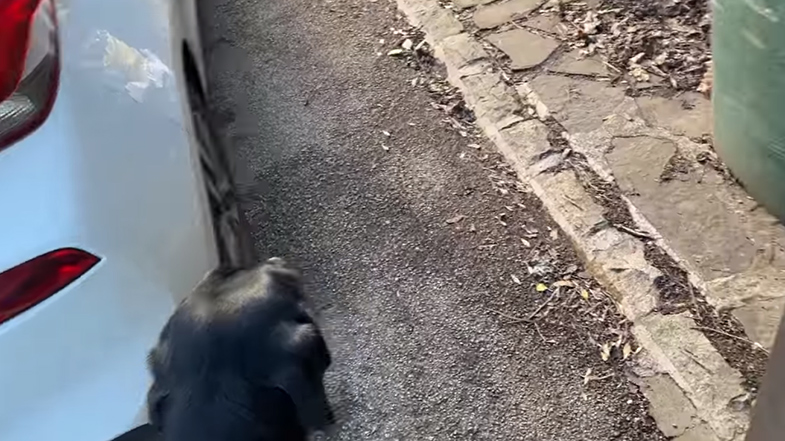

Terry said: “I was walking into Shipley with my guide dog Spencer to meet my partner for a coffee. I have walked the route many times and it’s usually a nice, long walk. On the route I walk down a narrow path on an extremely busy road, now the route has become an absolute nightmare because of pavement parking. Yesterday I had to step out into oncoming traffic three times in quick succession. My partner has since reviewed the footage and told me that there were drivers in the window cleaner and scaffolding vans, but no one apologised, offered any help or moved their van to help me out, instead they just looked on.

I try and act calm on the outside so that my guide dog Spencer doesn’t pick up that I am frightened, and it doesn’t start to unnerve him too.
Terry, guide dog owner

“This isn’t the first time something like this has happened, like many people with sight loss I have encountered vehicles parked blocking the pavement before. Stepping out into the road from the safety of the pavement is frightening. I try and act calm on the outside so that my guide dog Spencer doesn’t pick up that I am frightened, and it doesn’t start to unnerve him too.
“I cannot emphasise how scary it is to stand at the edge of the pavement hearing cars whizzing towards you, not knowing if the few quiet seconds mean there’s no car coming and it’s clear to walk in the road or if there’s an electric vehicle coming. It’s absolutely terrifying.
“I wish that people that park blocking pavements would spare a thought for people like me or anyone else who needs pavements to be kept clear. But it’s not just people with sight loss who can struggle with pavement parking, older people, disabled people and wheelchair users, and parents with children in prams are all impacted by pavement parking. I wish people who parked on the pavement realised how irresponsible and dangerous it is to block pavements for people like us.”
The Government held a consultation on pavement parking in 2020 on options to tackle the issue, including the introduction of a new law restricting limiting pavement parking in England to areas set out by local councils. Such a system has been in place in London since 1974, and Guide Dogs says its previous research shows far fewer people with sight loss in London face daily problems with pavement parking, compared with the rest of the UK.
Helen Honstvet, Senior Public Affairs and Campaigns Manager at Guide Dogs, said: “Unfortunately Terry’s experience of pavement parking is all too common for people with sight loss. While pavement parking may be convenient for drivers, it acts as an immediate physical barrier to some members of society including older people, disabled and wheelchair users, parents with young children and, of course, people with sight loss. Pavement parking forces people out into the road and into the path of oncoming traffic, putting them in a dangerous and scary situation. The impact this has on people’s confidence can lead to some people feeling lonely and isolated from their local communities.

Pavement parking forces people out into the road and into the path of oncoming traffic, putting them in a dangerous and scary situation. The impact this has on people’s confidence can lead to some people feeling lonely and isolated from their local communities.
Helen Honstvet, Senior Public Affairs and Campaigns Manager at Guide Dogs

“We are urgently calling on the Government to introduce a new law limiting pavement parking to areas determined by local authorities. This system has been in place in London for over 40 years, and our research shows that in London, far fewer people with sight loss face daily problems with pavement parking compared with the rest of the UK.”
Guide Dogs has a petition on pavement parking calling on Grant Shapps, the Secretary of State for Transport, to concentrate action on pavement parking asking him to publish the results of the Government consultation and act urgently to introduce new laws limiting to pavement parking to areas determined by local authorities.

